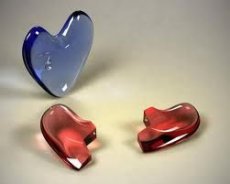New publications
Rejected love can cause physical pain
Last reviewed: 01.07.2025

All iLive content is medically reviewed or fact checked to ensure as much factual accuracy as possible.
We have strict sourcing guidelines and only link to reputable media sites, academic research institutions and, whenever possible, medically peer reviewed studies. Note that the numbers in parentheses ([1], [2], etc.) are clickable links to these studies.
If you feel that any of our content is inaccurate, out-of-date, or otherwise questionable, please select it and press Ctrl + Enter.

Physical pain and mental pain have much more in common than it might seem at first glance.
We talk about emotional pain without even suspecting how literal this metaphor is. By analyzing the psychological reaction of a rejected person, scientists have come to the conclusion that the pain of a broken heart can be compared to ordinary physical pain: both are located in almost the same part of the brain.
Interest in the psychological effect of rejection is understandable: rejection by society or another person is a very traumatic experience that people can remember for almost their entire lives. Researchers analyzed the state of the brain during a "broken heart" and during physical pain and found amazing coincidences in the picture of the working brain, which dealt with unpleasant sensations.
Physical pain can be divided into two components: sensory perception (the pain itself) and emotional coloring, when the brain decides how unpleasant these sensations are. It is the emotional component that reveals similarities with mental pain. The feelings we experience when cutting ourselves with a knife and the emotions of a “broken heart” are generated by the same areas of the brain. Moreover, if the rejection was extremely upsetting (for example, you were rejected by the love of your life), then the brain can even activate those areas that are responsible for the sensory perception of pain.
That is, you will actually feel pain, and it will be a very real sensation.
In an article published in the journal Current Directions in Psychological Science, Naomi Eisenberger of the University of California, Los Angeles (USA) describes the curious consequences of this coincidence of mental and physical pain. For example, a person who is overly sensitive to physical pain will feel just as lousy about social failures and will worry about any, even the most insignificant, rejection. And vice versa - we can say that the epithets "callous" and "insensitive" relate not only to mental disposition, but also to the ability, for example, to calmly endure visits to the dentist.
Moreover, it turned out that analgesics can relieve not only physical pain, but also mental pain. A gaming experiment was conducted in which a person had to interact with other virtual players. If he was refused cooperation, this created a certain psychological discomfort. But if the player was given the analgesic Tylenol before this, he experienced much less. The placebo did not provide any relief. Does this mean that, for example, you need to take a painkiller before a job interview? Perhaps. But the researchers emphasize that mental pain has a completely understandable advantage: we learn from our mistakes and subsequently try not to make mistakes in socialization. That is, a broken heart has an adaptive function: as a famous philosopher said, what does not kill us makes us stronger. By drowning out the heartache that others provide us with, we risk being left completely alone, never having learned to find a common language with people.

 [
[